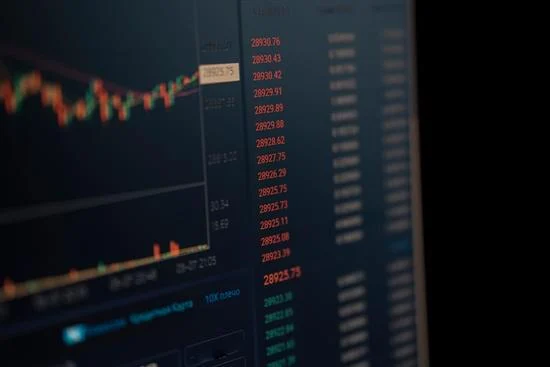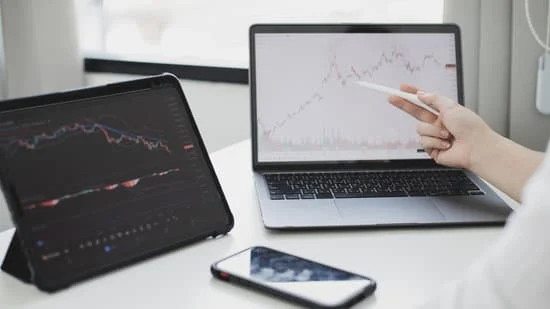 This Forex Trading Glossary will break down essential concepts to boost your confidence. The foreign exchange market, or Forex for short, is the world’s biggest financial market, buzzing with activity 24/7. Whether you’re just starting or looking to brush up on your knowledge, understanding key terms is crucial for navigating this exciting world. This Forex trading glossary will break down essential concepts to boost your confidence.
This Forex Trading Glossary will break down essential concepts to boost your confidence. The foreign exchange market, or Forex for short, is the world’s biggest financial market, buzzing with activity 24/7. Whether you’re just starting or looking to brush up on your knowledge, understanding key terms is crucial for navigating this exciting world. This Forex trading glossary will break down essential concepts to boost your confidence.
Trading Currency
Imagine buying and selling different currencies, like trading baseball cards! In Forex, you deal in currency pairs, where one currency is valued against another. The most traded pairs, like EUR/USD (Euro vs. US Dollar), are called major pairs. Other pairs, not involving the USD, are called minor pairs.
Market Movers
The Forex market isn’t a solo act! There are two main player types:
- Retail traders: These are individuals like you and me, buying and selling currencies through online platforms.
- Institutional traders: Big players like banks and multinational companies trade in much larger volumes.
Why You Need a Forex Trading Glossary:
Feeling lost in a sea of confusing Forex terms? Don’t worry, a Forex trading glossary is your key to unlocking this exciting market! Here’s how it can help you:
- Speak the Trader Talk: Just like any group, Forex traders have their lingo. A glossary equips you to understand what others are saying in news reports, trading strategies, and discussions. No more feeling left out!
- Make Smarter Trades: Forex trading can be risky, but a glossary helps you make better decisions. By understanding terms related to placing orders, managing risk, and analyzing the market, you’ll be a more informed trader.
- Conquer Trading Platforms: Online platforms for Forex trading can throw a lot of terms at you. A glossary acts like a decoder ring, helping you understand what’s on the screen and use the platform with confidence.
Understanding the Forex Trading Glossary
Explore key terms used in Forex trading to navigate platforms and so make informed decisions.
- Pip: The smallest price movement a currency can make. Think of it as the cents on a dollar, but much smaller! For more information about What is a Pip, click on this link.
- Spread: The difference between the buying (bid) price and the selling (ask) price of a currency pair. It’s like the commission you pay for trading. It is important to know all about What Spread in Forex Trading, if you want to have more information, check our articles about spread.
- Leverage: Imagine using a small amount of your own money to control a bigger trade. That’s leverage! It can magnify profits, but also magnify losses, so be cautious.
- Margin: When using leverage, you need to put up a deposit, called a margin, to cover potential losses. Think of it as a security deposit.
Stay on Top of the Forex Lingo:
The world of Forex trading is always changing, so it’s a good idea to keep your glossary fresh. Here are some ways to do that:
- Follow the financial news: Keep an eye out for new terms or hot topics popping up in the Forex market.
- Check trusted websites: Regularly visit reliable financial websites or blogs to see if there are any updates to common Forex vocabulary.
- Ask around: If you have a community of Forex traders, encourage them to give feedback on your glossary’s accuracy and completeness.
Forex Trading Glossary: Taking Control of Your Trades

So, there are different ways to tell the market what you want to do:
- Market order: Buy or sell a currency pair at the current price, like grabbing the first baseball card you see.
- Limit order: Set a specific price to buy or sell at, like waiting for a specific card to complete your collection.
- Stop-loss order: Set a price to automatically sell if the price goes against you, like having a limit on how much you’ll spend on cards.
- Take-profit order: Set a price to automatically sell when you make a profit, like selling a rare card to make some money.
Making Predictions
However, Traders use two main approaches to guess which way currencies will move:
- Fundamental analysis: This is like studying the baseball team’s stats – you look at economic data like interest rates and growth to predict currency movements.
- Technical analysis: This is like looking at past game scores – you study charts and past price movements to try to predict future prices.
Forex Glossary: Trading Styles
There are different ways to approach Forex trading, so depending on your goals by your knowledge about Forex Trading Glossary:
- Scalping: Making many small trades throughout the day, aiming for tiny profits each time.
- Day trading: Buying and selling currencies within the same day to catch short-term movements.
- Swing trading: Holding positions for a few days or weeks to profit from broader trends.
Choosing a Trading Partner
There are two main types of Forex brokers, like the middleman in a baseball card trade:
- Market makers: These brokers set their prices for currencies, often with a fixed spread.
- ECN brokers: These connect you directly to other traders in the market, often with variable spreads. What is an ECN Broker? Click here for more details.
Managing Risk
Forex trading can be risky, so it’s important to be smart and know the Forex Trading Glossary:
- Position sizing: Decide how much money to risk on each trade, like only spending a small portion of your allowance on cards.
- Risk-to-reward ratio: Make sure the potential profit is bigger than the potential loss, like aiming to get a valuable card for a lower price.
Keeping Up with the Game: Forex Trading Glossary

Here are some important economic indicators to watch:
- Non-Farm Payrolls (NFP): This tells you how many new jobs were created outside of farming in the US, which can impact the US dollar.
- Consumer Price Index (CPI): This tracks how much the price of everyday goods changes, to see if inflation is rising.
- Gross Domestic Product (GDP): This shows the total value of everything produced in a country, like a measure of the country’s economic health.
The Bottom Line:
Understanding these key Forex trading glossaries will equip you to navigate the market with more confidence. By familiarizing yourself with these concepts, you’ll be better prepared to make informed decisions on your Forex trading journey. However, this glossary is just the first step. Forex trading takes practice and ongoing learning, so keep at it!